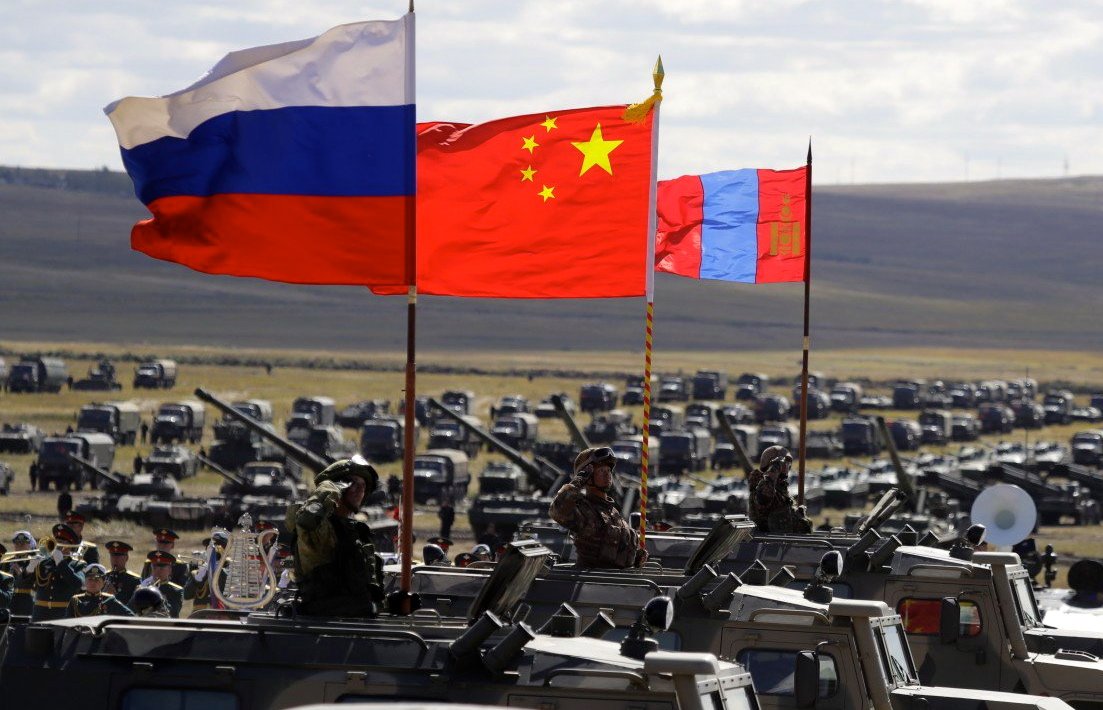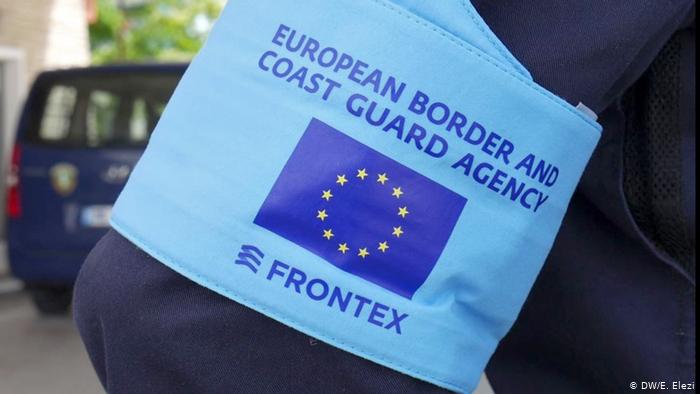THE SILVER FOX REMEMBERED
by THOMAS GOLTZ*
LIVINGSTON, MONTANA, JULY 7, 2014
Eduard Shevardnadze and I bonded during the siege and fall of the eastern Black Sea city of Sukhumi in September, 1993, and maybe because various Russian radio stations had declared us both missing and presumed dead.
We were not, but the night before he made his escape on small aircraft leaking fuel from its wings after having been peppered with ground-fire, I had been attacked by a dog that had chewed out a gaping wound in my left calf, and when I limped up to the villa Shevardnadze used as his HQ outside the beleaguered city, he approached to ask with genuine concern how I was holding up.
“Well, I was wounded last night,” I said, pointing to the oozing gash in my leg.
“Wounded?” asked the man usually known as ‘The Silver Fox” due to his splash of always unruly white hair.
“Yes—but by a dog.”
Shevy—the nickname given the former Soviet Foreign Minister by US President George H.W. Bush, allegedly because he could not pronounce Shevardnadze’s name—allowed his lips to part into his famous Cheshire grin, and began a non-laugh cackle before turning to walk away.
“By a dog…hehehe…by a Russian dog…”
His aids came rushing up to me to demand to know what he had said.
“That was the first time he has smiled in a week!” they exclaimed.
Then he fled on his shot-up airplane while I had to spend another day and night before I managed to flee aboard a Russian cruiser sent down from Crimea to rescue thousands of other new refugees. We debarked at the ancient port of Poti, from where I made my way back to the Georgian capital of Tbilisi to prove that the announcements about my demise had been premature--as had those reports about Shevardnadze having been encircled in his bunker, where he had (allegedly) made “Shevy’s Last Stand.” In fact, he was up in Moscow, throwing himself at the mercy of Russian president Boris Yeltsin, and begging to allow wayward Georgia back into the Russian sphere of influence in the post-Soviet space, for which he was declared a traitor by many Georgians.
*
On the occasion of his death on July 7, 2014 at the age of 86, much has been written about Eduard Shevardnadze—the enthusiastic young communist who once famously declared that for Georgia, the sun ‘rose in the north—in Russia!’ but who ended up being Mikhail Gorbachev’s midwife in the painful process of liberalizing the “Evil Empire” only then to watch it get thrown on the ash-heap of history. These voices include—or should include--US President George H. W. Bush, his Secretary of State James Baker III, Mikhail Gorbachev and a number of other late Cold Warriors, whose editorial opinion is above my pay scale. Still, I would like to offer a little ‘In Memoria’ testimonial, because what I can offer is something a little more personal.
Shevardnadze and I first ‘met’ in Moscow during a press conference held jointly with Iranian Foreign Minister Ali Akbar Veliyati in the aftermath of the August 19, 1991 abortive putsch against Gorbachev. I guess what was most significant was that Shevardnadze—who had resigned from Gorby’s Kremlin some months before--had accepted Gorbachev’s invitation to become Foreign Minister again, a post he would hold up until the formal dissolution of the USSR on Christmas Day, 1991.
As for Shevardnadze’s native land, my initial involvement began in January 1992, when I was assigned the task of running down the ousted president of now independent Georgia, Zviad Gamsakhurdia for an interview. Zviad was said to be in a place called Zugdidi in western Georgia, where he had (allegedly) denounced Shevardnadze and declared the start of Civil War. Not finding him in Zugdidi, I next sought Zviad in Sukhumi, capital of the (Georgian) Autonomous Republic of Abkhazia, now thought to be his last redoubt, and where public opinion was indeed bitterly anti-Shevardnadze—to the point of paranoia.
But Zviad was not in Sukhumi, either—nor had he been. In fact, he was already holed up in Grozny as the guest of the mercurial Chechen president, Djohar Dudayev. Still, the subject of Eduard Shevardnadze was writ large all over western Georgia, where ‘The Silver Fox’ was consistently accused of being a Russian stooge, sent back to Georgia to orchestrate the destruction of the country—and after his return to Tbilisi in March, 1992, this almost often seemed to be the case if only due to sheer chaos then engulfing Georgia.
By the time of our first proper interview in early 1993, Tbilisi was only in control of maybe half of territorial Georgia: Russian ‘Peace Keepers’ reigned supreme in the Autonomous District of South Ossetia; the National Guard (and other sundry militia/bandit groups such as the Mkhedrioni, or Knight Horsemen) had disobeyed Shevardnadze’s call for negotiations with the Abkhaz leadership, and overrun (and then looted) Sukhumi. Meanwhile, the rest of the so-called ‘Red Riviera’ north of the Gumista River had become a sort of “Free Abkhazia,” which rapidly filled with Cossack free-booters and Chechen volunteers under the command of the likes of Shamil Basayev.
The volunteer groups were covertly and then overtly supplied by shadowy elements of the Russian military, said to be seeking revenge against Shevardnadze for having ‘sold out’ the Soviet Union in Afghanistan in 1989, and then participated in the dissolution of the USSR itself in 1991. Thus, in a neat twist, Shevardnadze was accused of being a Super Subversive Stalking Horse by virtually all players both inside and outside the country, both pro- and anti Russian (meaning Soviet).
Then there was the Autonomous Republic of Adjara on the Black Sea coast, where a certain traditional leader of Georgia’s Sunni Muslim minority—the Adjarans—held sway in the oil-export port city of Batumi, protected by a Russian garrison, and where the Russian ruble was the local currency, and not the Monopoly-like legal currency of newly-independent Georgia, the lowly Lar.
Yes, those were some pretty bleak days in post-Soviet Georgia back then, circa 1992-94, made more extreme by the steepness of the fall from grace: Georgia had been one of the most prosperous corners of the USSR (tourism, wine and a native knack for manipulating the underground economy) when Shevardnadze had been at the helm as First Secretary of the Georgian SSR, and then as Foreign Minister of the USSR itself. Now, he was master of a state that had become so totally dysfunctional that at times it seemed that the only lights in the city were on the 8th floor of the chancellery building, where Shevardnadze held post-midnight court.
This was the period when Shevy survived several assassination attempts, and when corruption reached ridiculous proportions in Georgia.
There were other brief encounters with the Silver Fox as Georgia veered from one crisis to the next, but the primary—and most surprising—came when I organized a geopolitical stunt to deliver first Caspian crude oil down the proposed (and then very controversial) Baku-Tbilisi-Ceyhan pipeline route from Azerbaijan to the Turkish eastern Mediterranean (and thus via Georgia) aboard a small fleet of Soviet-era sidecar motorcycles, known as URALs.
Passing through Tbilisi, I had made arrangements through Shevardnadze’s staff to have a group briefing and photo session. As leader, I was asked to make a few remarks about the details of our expedition, noting the length (about 2000 kilometers), duration (about two weeks) and the various difficulties we faced (living in tents; living with each other, bad roads, etc). Almost before I had finished my remarks, Shevardnadze started to cackle his famous cackle.
“You call that a motorcycle trip? When I was a member of Komsomol (the Communist Party Youth League) I traveled all the way across the USSR on an URAL with no sidecar, and it took two months--solo!”
Eduard Shevardnadze—biker?
Petre Mamradze, then Shevy’s Chief of Staff, and a man who had worked with Shevy for more than 20 years, later informed me that he had never heard of this Edik-The-Wild-One story; but as evidence, another aid dug through state archives and found a picture: a much younger Shevardnadze, dressed in motorcycle leathers, hound-dog eyes staring at the camera, with that weird Cheshire grin stretched across his face.
I saw Shevy a few more times over the next few years, usually in association with some BTC-related event, the last being at the symbolic trenching of the first segment of BTC pipeline at a ceremony held on Sept 16, 2002. Shortly thereafter—in March, 2003—he was ousted from power by Mikail Saakashvili and his so-called Rose Revolution. Rather than fleeing into exile in Germany or Wyoming, however, Shevardnadze made his peace with the new authorities, and went into retirement in Tbilisi. The alternative might have appeared to be some sort of government in exile; he did not do that.
The last time I saw him was in late 2011when I was granted the privilege mainly because ever-loyal Petre Mamradze had managed to spark recollection in Shevardnadze’s fading memory with the story about that American reporter declared dead in Sukhumi, Caucasian rabies and motorcycle madness down the BTC...
We were ushered into his well-appointed study, and waited until the Silver Fox entered on the arm of his devoted caretaker. The solo motorcycle rider across Siberia had been reduced to a very frail old man, with tremors in his hands.
The scope of the interview was limited by choice: I was making a new film on Azerbaijan and wanted to include Shevardnadze for any insights he might share about Heydar Aliyev, the Soviet-era strongman in Azerbaijan, fellow Politburo member in the 1980s and then fellow reborn local nationalist in the post-Soviet Caucasus, when the two men and two states—one nominally Christian and the other nominally Muslim—had formed the closest of alliances.
I had asked for a maximum of fifteen minutes, but Shevardnadze surprised everyone by insisting on recording his thoughts on Aliyev for more than an hour. The most eye-brow raising quote was his noting telephone conversations with the Azerbaijani leader as Aliyev lay dying in a Cleveland, Ohio hospital in late 2003. The Azerbaijani opposition has long claimed that Aliyev was already brain-dead when he was brought to the United States after suffering twin heart attacks in the summer of that year; Shevy effectively refuted that claim. The funniest anecdote was when Shevardnadze related his shock and horror at the start of a state visit to Baku, when he discovered the road in from the airport lined with hundreds of sheep about to be ritually slaughtered in his honor.
“What have I done to deserve this horror, and how will I be forgiven in the next life?” Shevy demanded of Aliyev.
“This is nothing,” smirked the Azerbaijani. “You should have seen the sacrificial show I put on for Demirel!”
Suleyman Demirel, the former Turkish president, was the all-important third leg of the BTC troika in the Caucasus, and now the last one left alive.
The interview was over; we all posed for pictures; I gave Shevardnadze one of my books, and he gave a signed copy of his most recent memoir (in German), “When The Wall Came Down.”
Then he struggled to his feet, and shuffled over to his working desk.
“Shoot, shoot,” he instructed my cameraman. “Normally, I do not allow people to make videos of me at my desk, but I have had a wonderful time with you today, remembering.”
“Madlopt, didi madloba,” I said in my best Georgian, and Shevy smiled his Cheshire smile.
It reminded me of our post-Sukhumi survivor’s meeting/interview in Tbilisi on a cold and dreary January 1994, when we embraced almost as Comrades-In-Arms.
“How’s your leg?” Shevy asked.
“Fine, fine,” I replied. “I was worried about rabies, but the American Center for Disease Control in Atlanta in that other Georgia told me that if I had rabies, I would already be dead—and that was three months ago.”
“Don’t be so sure,” said Shevy, his lips again pulling back into his signature half-smile. “Caucasian rabies has a longer incubation period than in the West…hehehe…”
I wonder whom among the ‘Big Boys’ who sang his praises back in 1990-94 will attend his funeral.
I wish I could.
-----
*Thomas Goltz is the author of the so-called ‘unplanned’ Caucasus triptych—Azerbaijan Diary (1998/99); Chechnya Diary (2003) and Georgia Diary (2006/09) as well as numerous articles and chapters in edited books on the Caucasus region. His web site is www.thomasgoltz.com
© 2009-2025 Center for Eurasian Studies (AVİM) All Rights Reserved
Henüz Yorum Yapılmamış.
-
 URGENT NEED FOR NEW COOPERATIVE SECURITY ORDER IN EURASIA - HÜRRİYET DAILY NEWS - 19.10.2018
URGENT NEED FOR NEW COOPERATIVE SECURITY ORDER IN EURASIA - HÜRRİYET DAILY NEWS - 19.10.2018
Teoman Ertuğrul TULUN 23.10.2018 -
 HUMAN RIGHTS VIOLATIONS OF THE REFUGEES: THE CASE OF FRONTEX AND THE EU - 14.09.2021
HUMAN RIGHTS VIOLATIONS OF THE REFUGEES: THE CASE OF FRONTEX AND THE EU - 14.09.2021
Deniz ÜNVER 14.09.2021 -
LİBYA VE “DEĞERLER AVRUPASI”
Deniz ALTINBAŞ 02.03.2011 -
 DOĞU AKDENİZ’DE ÇİN - 19.11.2021
DOĞU AKDENİZ’DE ÇİN - 19.11.2021
Deniz ÜNVER 19.11.2021 -
 GENOCIDE, SLAVERY, AND THE UNITED STATES OF AMERICA - 30.05.2022
GENOCIDE, SLAVERY, AND THE UNITED STATES OF AMERICA - 30.05.2022
Ömer ZEYTİNOĞLU 30.05.2022


